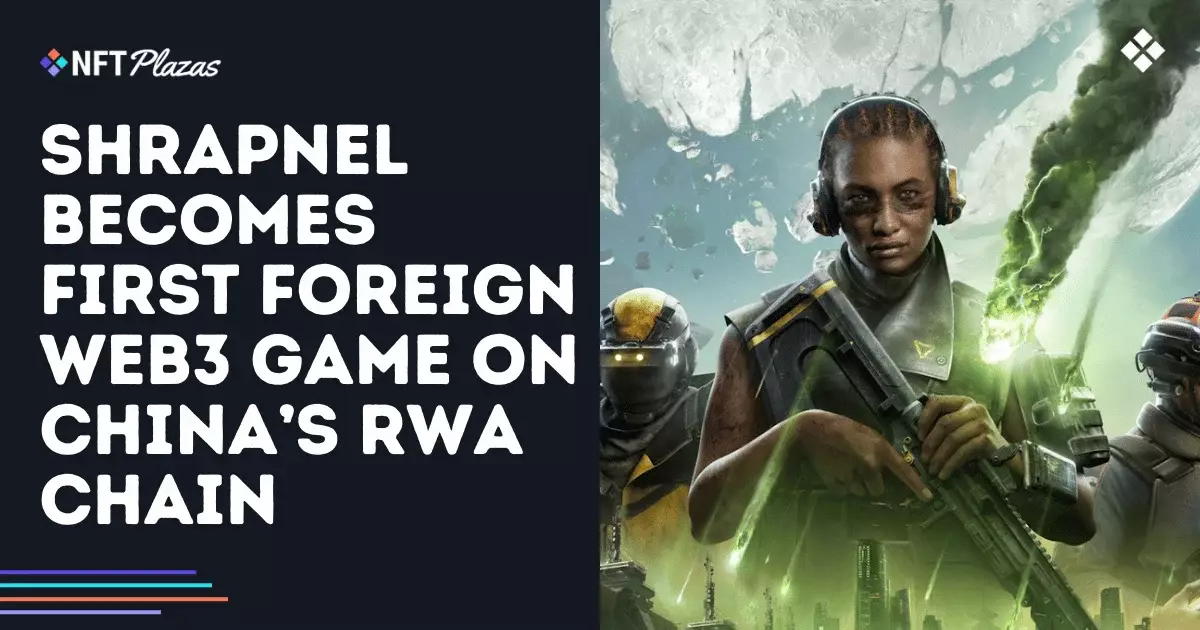The gaming world is abuzz with the news of Shrapnel, a US-developed web3 game, securing approval to operate on China’s state-sanctioned RWA Copyright Chain. This milestone represents not just a breakthrough for the game but a seismic shift in how foreign developers may navigate the labyrinth of the Chinese gaming market, valued at over $40 billion. While other nations gradually embrace NFT gaming, China remains an enigma; thus, Shrapnel’s success marks a pivotal moment suggesting that potential can flourish even amidst stringent regulations.
Local Partnerships: Building Bridges or Barriers?
Shrapnel’s Chinese launch will feature local partnerships and distribution channels—an approach hailed as a model for future cross-border collaborations. However, one must question the implications of such partnerships. With collaborations, like the one with Lingjing Game Labs, there’s always the risk of compromising a developer’s creative essence. Will these partnerships genuinely enhance the game, or will they dilute its original vision? The Chinese government’s control over the gaming ecosystem raises further concerns. While fostering local ties is strategic, one must be wary of potential pitfalls that arise when artistic vision collides with state interests.
Digital Assets as Property: An Interesting Legal Landscape
The legal recognition of in-game assets—skin and digital weapons—within Chinese jurisdiction is revolutionary. Players will soon be able to buy, sell, and trade these items through a regulated marketplace, resting under the RWA Copyright Chain. This development appears to protect intellectual property rights, but it simultaneously raises questions about consumer freedom. In a marketplace regulated by national guidelines, how much freedom will players truly retain? And does this model serve the interests of players or governmental oversight more?
Compliance: The Price of Entry?
Shrapnel’s journey into China symbolizes compliance as the new currency for entering restrictive markets. While other countries may foster a more liberal stance toward NFTs and blockchain tech, China’s stringent measures can be daunting. But should compliance to such regulations be viewed as a necessary evil? For companies seeking entry into lucrative markets like China, this paradigm shift might necessitate sacrifices in business models and creative output. It challenges the idea of a truly decentralized gaming structure that many NFT supporters cherish, creating a dilemma for developers: to play by the rules or forsake lucrative opportunities.
China’s Developing Narrative on Blockchain Technology
This event is not merely about one game; it’s indicative of a changing narrative within the Communist Party’s approach to blockchain technologies. Historically, the Chinese government has kept a tight grip on digital finance and cryptocurrencies—concerns about capital flight, fraud, and lack of control have dictated policy decisions. Yet Shrapnel suggests an awakening to blockchain’s potential, provided it aligns with national priorities such as IP protection and digital asset tracking. It remains to be seen if this shift is a mere exception or a sign of broader market reform.
In embracing regulatory compliance, Shrapnel has successfully paved the way for others, yet questions remain regarding the long-term ramifications for both developers and players in this evolving digital landscape. With its introduction, we stand on the precipice of an exciting, albeit uncertain, future in NFT gaming within China.
















Leave a Reply